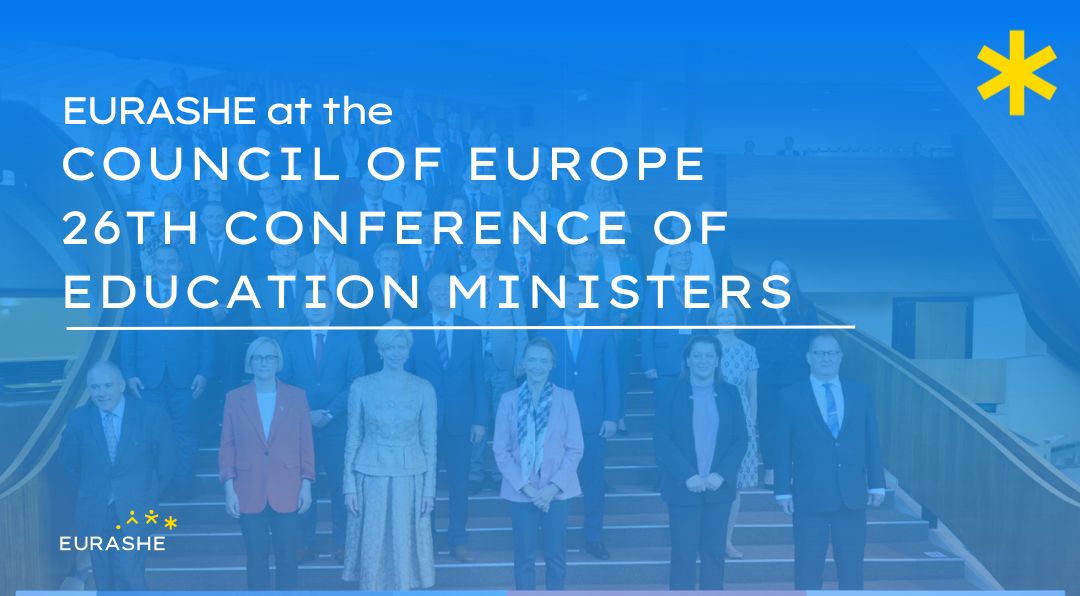On 28-29 September, EURASHE Secretary General John Edwards participated in the Council of Europe’s Conference of Ministers of Education – its 26th session that was first held in 1959. During the discussion on the renewal of the civic mission of education, the Secretary General delivered the following speech.
Distinguished Ministers, Ambassadors and Delegates, the word ‘civic’, in the title of our conference, is an adjective to describe, and I quote the Cambridge dictionary, “of a town or city, or the people who live in it”. Yet education institutions, especially for higher education are often located IN a town or city, but are not part OF it. Many European universities were originally founded by religious institutions to educate local citizens, but over time they have abandoned this mission, obsessed with global rankings, and catering for an increasingly commercial international market.
Renewing the civic mission of education involves not just students but all citizens. Applied universities and colleges, which EURASHE represents, can play an important role in their cities and regions, developing skills and talents, fostering innovation in local SMEs and enriching communities. Indeed, mayors and those who elect them rightly ask their local universities what are they good FOR, not just what are they good AT.
Most important for this conference is that education should provide opportunities for people in all places to learn and thrive. Quality education should be accessible to everyone, not just those who can travel to core cities. Indeed, accessing education is becoming important throughout people’s lives. Adult learners cannot pack up their lives to enrol on a study programme far away. Edtech solutions may help but for the increasingly important practice based and dual programmes, local provision is essential. Furthermore, neglecting education in less developed regions – the so called ‘Places left behind’, can weaken democracy and feed populism.
My final point is to strongly welcome the inclusion of VET in the resolutions of the conference. VET is provided at all levels of educational, from secondary school to doctoral programmes, and should be given the same prestige as academic education. Mobility between vocational and academic courses can also increase inclusion and education pathways. This will help to retain talent and economic activity in cities and regions – people and employers who many otherwise locate elsewhere.
Dear Ministers, Ambassadors and Delegates, to conclude I urge you to recognise and value the civic mission of education and training institutions. For universities this is sometimes referred to as their third mission, and by definition, an inferior role – in
fact their civic vocation should be a core mission, integrated into all education and research activities. This will rejuvenate the towns and cities in your countries. EURASHE looks forward to working with the Council of Europe on a civic, place based and transformative approach to education.
Thank you.


